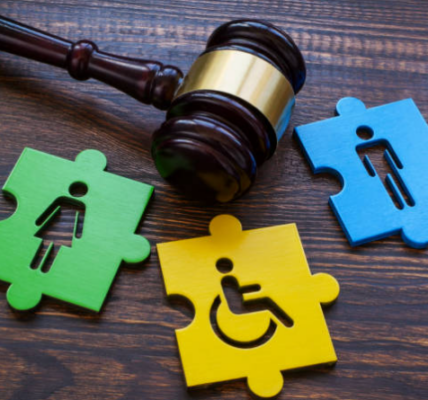When Life Throws a Curveball: The Role of a Personal Injury Lawyer in Seeking Justice
Life is unpredictable, and often, it throws unexpected challenges our way. One such challenge can be a personal injury caused by the negligence or wrongdoing of another party. In these moments of distress and uncertainty, a personal injury lawyer can be a beacon of hope, guiding individuals through the legal complexities and advocating for their rights. This article delves into the crucial role of a personal injury lawyer in seeking justice for those who have been wronged.
Understanding Personal Injury:
Personal injury refers to any physical or psychological harm inflicted upon an individual due to the actions or negligence of another person, company, or entity. These injuries can result from various incidents, including car accidents, workplace accidents, medical malpractice, slip and fall accidents, and defective products. Regardless of the cause, the consequences of a personal injury can be devastating, leading to physical pain, emotional trauma, financial burden, and long-term repercussions.
The Role of a Personal Injury Lawyer:
A personal injury lawyer serves as an advocate for individuals who have suffered harm due to the actions or negligence of others. Their primary objective is to seek justice and fair compensation for their clients’ losses, including medical expenses, lost wages, pain and suffering, and other damages. Here’s how they fulfill their role:
-
Legal Expertise:
Personal injury law is complex, encompassing various statutes, regulations, and legal precedents. A skilled personal injury lawyer possesses in-depth knowledge of these laws and understands how to navigate the legal system effectively. They can assess the merits of a case, identify liable parties, and determine the best course of action to pursue justice on behalf of their clients.
-
Investigative Skills:
Building a strong personal injury case requires thorough investigation and gathering of evidence. A personal injury lawyer employs investigative techniques to collect relevant information, such as accident reports, witness statements, medical records, and expert opinions. By meticulously piecing together the facts surrounding the incident, they strengthen their client’s position and increase the likelihood of a favorable outcome.
-
Negotiation and Advocacy:
Many personal injury cases are resolved through negotiations with insurance companies or out-of-court settlements. A proficient personal injury lawyer is adept at negotiating with opposing parties to secure fair compensation for their clients. They leverage their knowledge of the law and persuasive communication skills to advocate for the maximum settlement amount possible. If a settlement cannot be reached, they are prepared to take the case to trial and present a compelling argument before a judge and jury.
-
Client Representation:
Beyond legal expertise, a personal injury lawyer provides invaluable support and guidance to their clients throughout the legal process. They serve as trusted advisors, keeping their clients informed about the progress of their case, explaining their rights and options, and offering compassionate assistance during challenging times. By prioritizing the well-being of their clients, they instill confidence and empower them to pursue justice with determination.
-
Pursuit of Justice:
At its core, the role of a personal injury lawyer is to uphold justice and hold negligent parties accountable for their actions. By seeking compensation for their clients’ losses, they aim to restore a sense of balance and provide a measure of closure to those who have been wronged. Their commitment to justice extends beyond individual cases, as they strive to create safer communities by advocating for systemic changes and preventive measures to reduce the occurrence of personal injuries.
FAQS
- What is a personal injury lawyer, and what do they do?
A personal injury lawyer is a legal professional who specializes in representing individuals who have been physically or psychologically injured due to the negligence or wrongdoing of another party. They handle various types of personal injury cases, including car accidents, slip and fall incidents, medical malpractice, workplace injuries, and product liability claims. Their primary role is to advocate for the rights of their clients and seek compensation for their losses.
- When should I contact a personal injury lawyer?
It’s advisable to contact a personal injury lawyer as soon as possible after sustaining an injury. Prompt legal representation can help protect your rights and ensure that crucial evidence is preserved. Additionally, there are time limits, known as statutes of limitations, for filing personal injury claims, so it’s essential to seek legal advice promptly to avoid missing any deadlines.
- How do personal injury lawyers charge for their services?
Personal injury lawyers typically work on a contingency fee basis, which means they only receive payment if they successfully recover compensation for their clients. In such arrangements, the lawyer’s fee is a percentage of the final settlement or court award. If the case is not successful, the client is not responsible for paying attorney fees, although they may still be responsible for certain out-of-pocket expenses incurred during the legal process.
- What types of compensation can I recover in a personal injury case?
In a personal injury case, you may be entitled to various forms of compensation, including:
-
- Medical expenses: Coverage for past and future medical treatment related to your injury.
- Lost wages: Compensation for income lost due to your injury, including future earning capacity if applicable.
- Pain and suffering: Damages for physical pain, emotional distress, and loss of enjoyment of life.
- Property damage: Reimbursement for damage to your vehicle or other property caused by the incident.
- Punitive damages: Additional compensation awarded to punish the defendant for particularly egregious conduct.
- How long does it take to resolve a personal injury case?
The timeline for resolving a personal injury case varies depending on various factors, including the complexity of the case, the extent of the injuries, and the willingness of the parties to negotiate a settlement. Some cases may be resolved in a matter of months through negotiation or mediation, while others may take years to litigate in court. Your personal injury lawyer can provide a more accurate estimate based on the specific circumstances of your case.
- What should I do if I’ve been injured in an accident? If you’ve been injured in an accident, it’s essential to prioritize your health and safety first. Seek medical attention for your injuries and follow your doctor’s treatment recommendations. Additionally, document the details of the incident as thoroughly as possible, including taking photographs, obtaining contact information from witnesses, and reporting the incident to the appropriate authorities. Finally, consult with a personal injury lawyer to understand your legal rights and options for pursuing compensation.
Conclusion:
When life throws a curveball in the form of a personal injury, a skilled personal injury lawyer can make all the difference in the pursuit of justice. With their legal expertise, investigative skills, negotiation prowess, and unwavering advocacy, they stand as formidable allies for those who have been injured due to the negligence or wrongdoing of others. By guiding their clients through the complexities of the legal system and fighting tirelessly on their behalf, they bring hope and resolution in times of adversity. In the quest for justice, a personal injury lawyer is a beacon of light, illuminating the path towards healing, recovery, and restitution.


